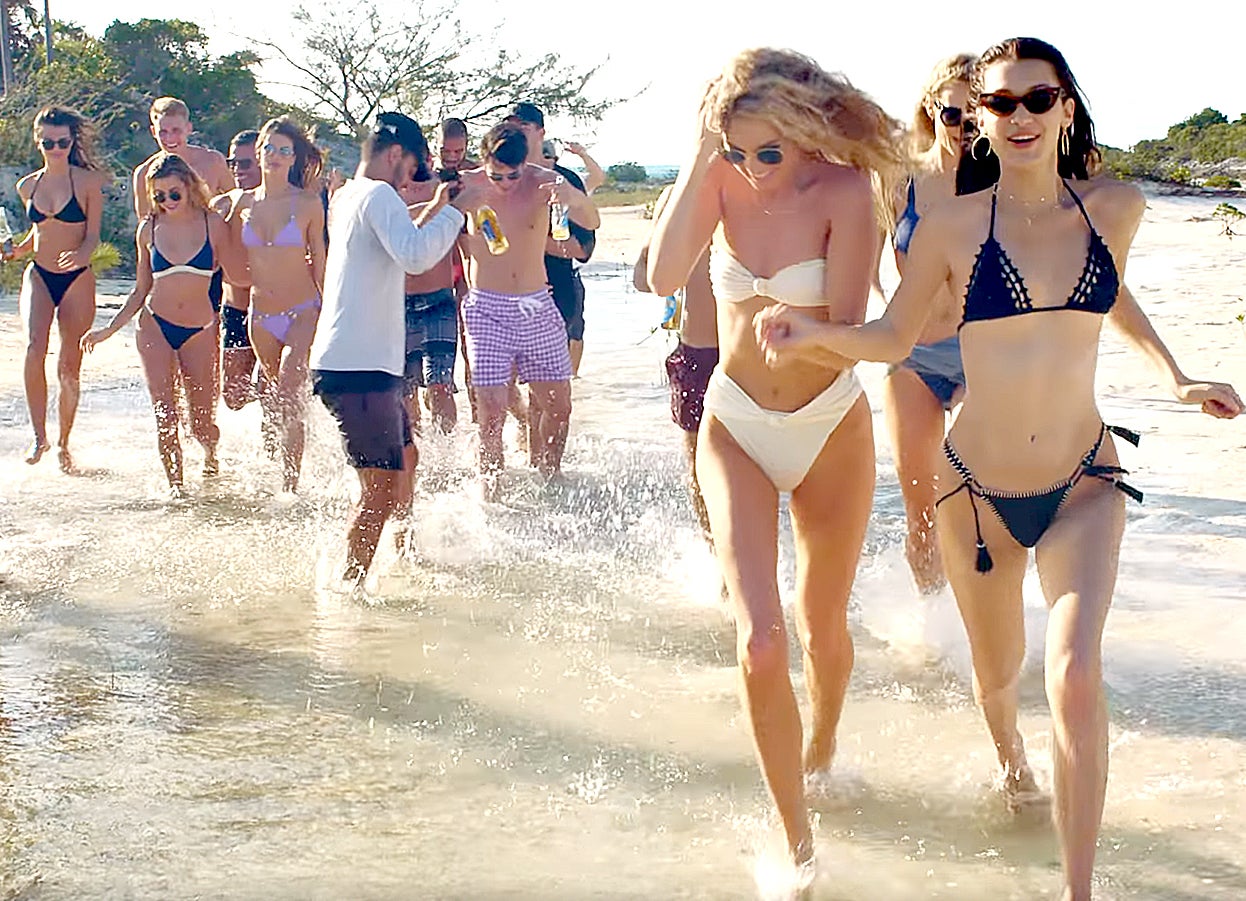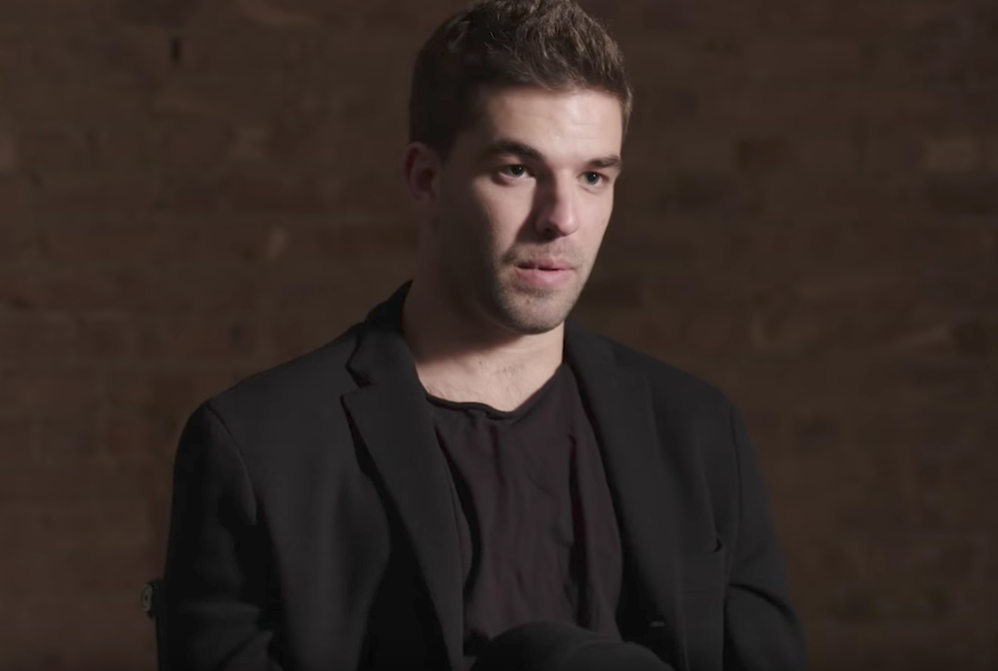Why the Fyre Festival documentaries were so terrifying
In the new Hulu and Netflix documentaries, Billy McFarland said one thing about influencer culture that should alarm us all, writes our columnist Lucy Jones


The most emotionally powerful moment of the two recent documentaries about the catastrophic Fyre Festival was an interview with Maryann Rolle, the caterer who had lost thousands of dollars of savings after the fraudster Billy McFarland left the island without paying her and her staff, along with hundreds of other local people. “They really, really, really hurt me,” she says, and her pain is heartbreakingly evident.
A lot of questions were left unanswered by the documentaries. For a start, where was co-organiser Ja Rule during and after the festival? Shouldn’t he be coughing up for the unpaid bills as well? Did Disclosure or the other bands actually make it to the island? The creator of a media company employed by McFarland exec-produced the Netflix version, and the Hulu team actually paid McFarland for an interview. Is that kind of involvement normal now? It feels a bit grubby to me. Also each film had a very different cast who all seemed central to the narrative which raises questions about veracity (and perhaps the authenticity of documentary as a genre).
I watched the films with a growing sense of unease and disquiet, not just because McFarland was so obviously a compulsive conman who harmed a lot of people, but also because of the ease in which people were duped and what that says about our new social media reality.
The Hulu doc starts with a simple description: “You’re living in your parents bedroom, you look at your phone, which you look at 100 times an hour... seeing people in places that you’re not, doing things you can’t afford to do.” This, straightaway, describes the crux of what led thousands of young people to buy extremely expensive tickets to the “once-in-a-lifetime” festival, seduced by a marketing video featuring beaches, supermodels and “influencers” on an island once owned by Pablo Escobar (the shorthand for cool drug lord who was also responsible for thousands of deaths), for a weekend that became a post-apocalyptic nightmare with mattresses piled up on gravel, soaking wet disaster-relief tents and, famously, the grimmest looking cheese sandwich of all time.
We might laugh at the predicament of a bunch of rich, beautiful, and damned millennials paying out thousands of dollars to attend a festival that was a cross between The Hunger Games and Lord of the Flies, and, yes, the memes were funny, but there is a cautionary tale here about the social media environment so many of us inhabit for hours a day and its effects on our psychological health and, even, the political landscape.
Haven’t we all been there in some way or another? Comparing our own lives to those carefully curated on social media and finding ourselves wanting? Bumming out that we haven’t got more likes or shares? Feeling the pressure to perform online, to be liked, to be approved of? Experiencing a kind of nasty vertigo at the level of disconnection from reality a life online can lead to? The influencer culture on Instagram, in particular, thrives on peddling unrealistic expectations of life and making people feel inadequate and empty, and then selling the latest juice cleanse, or cereal bar, or plastic surgery procedure that will 100 per cent make you feel better about your shitty life. It is a place where pure bullshit thrives.
McFarland barely answers any questions in his interview – which must have been galling for the producers who paid out thousands of dollars for it – but one line is telling: “The internet doesn’t have teachers, parents or rules, no one to tell you what is wrong,” he says, effectively blaming growing up online for his crimes. This is a ridiculous buck-pass, but it does speak to the wild wild west nature of social media and the culture of virtual reality which has real-life consequences. Digitally manipulated images can encourage body dysmorphia; doctored performances of motherhood make people feel they don’t measure up (I watched the Spencer Matthews baby show recently and, let me tell you, that is not how childbirth goes).
Evidence is rising about the potential negative effects of social media on health, with social media use linked to anxiety, depression and poor sleep. Studies suggest that the increase in personal technology and social media might be a factor in the decline of empathy (perhaps McFarland did have a point about the internet’s effect on his behaviour).

This doesn’t surprise me. Although I think I have my social media use under control, and consciously ration it, I still use it many, many more times a day than I want to. I can feel how addictive it is. It grosses me out that for years now I have approached an IRL experience with, how can I put this into x amount of characters? Nor does it sit well with me that I care how much a tweet or post is liked or shared. It doesn’t feel good or edifying and I don’t think the positives outweigh the negatives for my personality. But it is so much a part of life now that it feels impossible to stop.
It was terrifying to see how far McFarland could push his duplicity and the herd mentality that enabled it to happen. But – call me a technological dinosaur – the command social media has on our lives is also frightening. The horror of the Fyre parable burst the fantasy bubble for me, showing the hideous end-point a complete disconnection from reality can lead to.

Mary Oliver, one of my favourite poets, died last week, and I’ve been reading her verse as an antidote to all the recent bad news out there. “Tell me, what is it you plan to do with your one wild and precious life?” she asked in “The Summer Day”. And on that note, I will close my computer, not check my phone 100 times an hour, and go outside to listen to the starlings and the sparrows.
Join our commenting forum
Join thought-provoking conversations, follow other Independent readers and see their replies
Comments
Bookmark popover
Removed from bookmarks